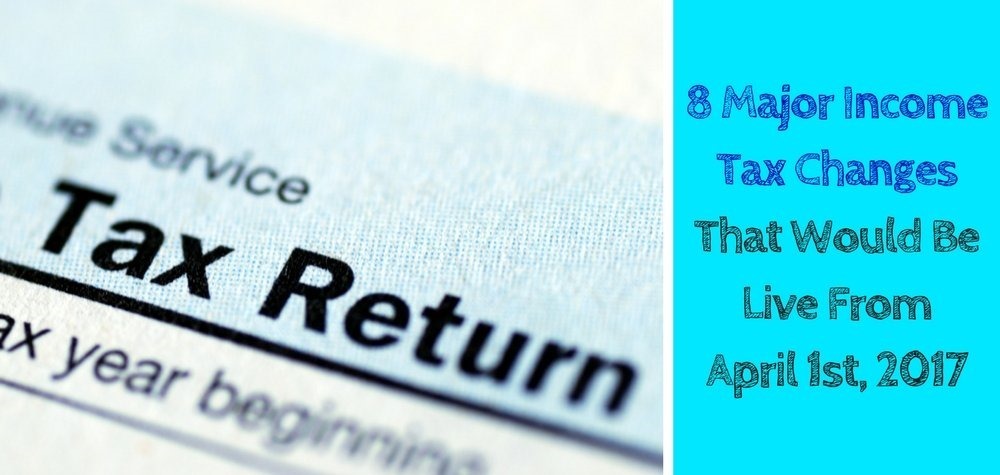8 Major Income Tax Changes That Would Be Live From April 1st!

Last week, Lok Sabha finally passed the Finance Bill 2017, which incorporates provisions declared under the Union Budget. One of the most important changes mentioned under this new Bill is making Aadhaar as a mandatory requirement for filing Income Tax.
Here are 8 major changes in the Income Tax rules, which would be effective starting from April 1st:
Contents
A) Real Estate:
From now on, the ‘long term’ holding of immovable property has been reduced to 2 years from 3 years earlier. Hence, immovable property held for two years and more would attract a tax of 20%; and rules for tax exemption for reinvestment holds true as before.
B) Inflation:
Earlier, April 1st, 1981 was considered as the base year for adjusting prices for inflation, which has now been changed to April 1st, 2001. This basically means that profits on the sale of real estate and other immovable properties would be less, and long-term capital gains tax will yield lesser returns.
C) Tax Payable:
In an Ease of Business initiative, those taxpayers who are earning below Rs 5 lakh, they can now file their income tax with a single sheet of form. Note here, that earnings from businesses are not included in this form, and in case you are filing tax for the first time, then there shall be no scrutiny as well.
D) Tax Payable:
If your annual income is between Rs 2.5 lakh and Rs 5 lakh, then there is good news for you. Tax rates have now been reduced to 5% from 10% earlier, which means a direct saving of Rs 12,500 per year.
E) Tax Payable:
Besides, those taxpayers whose annual taxable income is Rs 3.5 lakh, they will now pay income tax of Rs 2575, which was Rs 5150 earlier.
F) Tax Payable:
However, there is bad news for those taxpayers, who have an annual income up to Rs 1 crore but more than Rs 50 lakh. These taxpayers to pay an additional surcharge of 10%, which was recently introduced in the Finance Bill 2017. And for those who are earning more than Rs 1 crore, the additional surcharge is 15%
G) Penalty:
For the period 2017-18, new Income Tax rules provisions a penalty of Rs 5,000 if the tax-payer files the tax before December 31, 2018. Beyond which, the penalty would be Rs 10,000 for those tax-payers, who have earnings less than Rs 5 lakh.
H) Tax Exemptions:
There has been a major change under tax exemptions, especially those investments made under Rajiv Gandhi Equity Savings Scheme. As per the new rules, all tax exemptions provided for first-time investors in listed equity shares or listed units of equity allocated under Rajiv Gandhi Equity Savings Scheme has been withdrawn.
While introducing the changes in the Finance Bill 2017, Finance Minister Arun Jaitley said, “We are moving towards a time when there will be no shadow economy but some are still seeing virtues of cash transactions..”
He elaborated the fact that there have been no new provisions to provide ‘arbitrary powers’ to the officials of Income Tax, and farmers’ income would remain tax-free.

You didn’t mentiond starting of tax terrorism by sec132 of IT act, Which also live from april 1st for last 55 years.